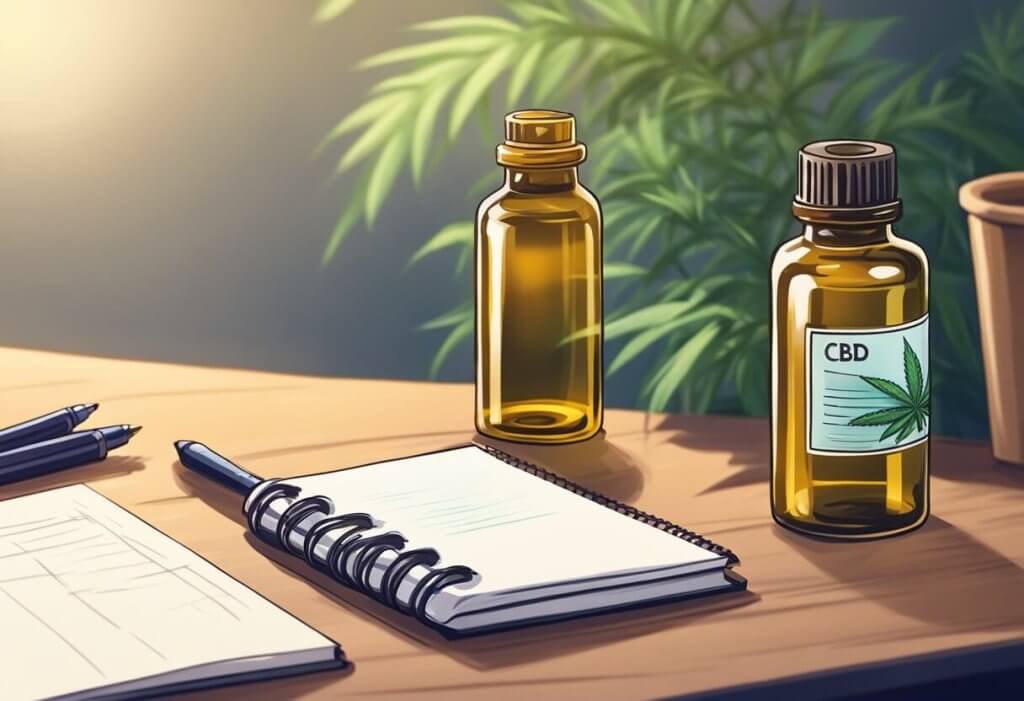Unpacking Potential Benefits and Research Insights
Disclaimer: The anecdotal benefits of CBD mentioned on this website are based on preliminary research and individual user experiences. All information presented here is not meant to substitute for or replace information from health care practitioners. Please click here for our full disclaimer, including side effects, FTC position, etc.
Millions of people struggle with ADHD, often feeling frustrated with the limited treatment options available. Could CBD offer a new path forward?

If you or someone you love grapples with the challenges of ADHD, you’ve likely explored a variety of treatments, from medication to therapy. But what if there was a natural alternative that could help manage symptoms without the side effects often associated with traditional treatments? CBD, a compound derived from the cannabis plant, has garnered significant attention for its potential neuropsychiatric benefits.
As research continues to uncover how CBD interacts with the brain and body, many are turning to this natural remedy as a complementary approach to managing ADHD. While more studies are needed to fully understand its effects, the promise of CBD has sparked a conversation about the future of ADHD treatment and the role that nature’s pharmacy might play in supporting those with this complex condition.
Key Takeaways
- ADHD is a neurodevelopmental disorder for which CBD is being explored as a potential treatment.
- Initial studies show CBD may help manage certain ADHD symptoms, though further research is required.
- Careful consideration of CBD’s legal status, quality, and dosing is important, and medical advice is essential before use.
Understanding CBD and Its Role in ADHD Treatment

Cannabidiol (CBD) has emerged as an alternative treatment option for ADHD, which may offer benefits without the side effects typically associated with traditional medications.
The Science Behind CBD
Researchers are actively exploring how CBD, a non-psychoactive compound found in hemp, interacts with the body’s endocannabinoid system. This system plays a key role in regulating mood and cognitive functions.
CBD’s potential to modulate receptors in the brain suggests it might influence symptoms commonly associated with ADHD, such as hyperactivity and inattention.
CBD’s Effects on ADHD Symptoms
While the research is ongoing, some studies suggest that CBD oil can help manage symptoms of ADHD, including hyperactivity, impulsivity, and difficulties with focus and mood.
A small 2020 study found that a higher dose of CBD was associated with a reduced need for other ADHD medications. Meanwhile, another study involving a CBD nasal spray reported a minor reduction in hyperactivity and impulsivity.
Comparing CBD to Traditional ADHD Medications
Traditional ADHD medications, often prescription drugs like stimulants, are effective for many but can come with a host of unwanted side effects, such as mood swings or cognitive impairment.
CBD, by contrast, is generally considered safe with relatively few and mild side effects, such as nausea or stomach upset, particularly at higher doses. This has led to growing interest in its use as part of ADHD treatment plans. However, it’s important to note that while CBD might offer symptomatic relief, it should not be viewed as a replacement without consulting healthcare professionals.
“CBD has shown promise in reducing anxiety, which can be another symptom experienced by people with ADHD. Early research suggests CBD may help with both focus and impulsivity, though more studies are needed to confirm this.”
Dr. David Berger, pediatrician and medical director
Practical Considerations for CBD Use

When considering CBD for ADHD, understanding dosage, legality, and the importance of medical guidance is crucial for a safe and informed approach.
Determining the Right CBD Dosage
The right dosage of CBD can vary widely among individuals. Factors such as body weight, the severity of symptoms, and individual biology all play a role.
CBD products, including oils, tinctures, gummies, and capsules, often come with recommended dosages. However, these are general guidelines rather than one-size-fits-all solutions.
A clinical trial may offer dosage insights, but personal experimentation under healthcare supervision is typically necessary to find the optimal dose.
Table: CBD Dosage Guidelines for ADHD
| Weight Range (lbs) | Low Strength | Medium Strength | High Strength |
|---|---|---|---|
| 100-130 | 10-15mg | 15-20mg | 20-25mg |
| 130-160 | 15-20mg | 20-25mg | 25-30mg |
| 160-190 | 20-25mg | 25-30mg | 30-35mg |
| 190+ | 25-30mg | 30-35mg | 35-40mg |
Note: These dosages are general guidelines. Always consult with a healthcare professional before starting a CBD regimen for ADHD.
Legal and Safety Concerns
While CBD is federally legal in the US, THC levels must not exceed 0.3% to comply with the Food and Drug Administration (FDA) regulations.
The legality of CBD can also vary by state, particularly when it comes to medical cannabis products.
On the safety front, CBD is generally considered safe, but it’s not risk-free. Potential side effects and drug interactions are a concern, particularly if you’re taking medications like blood thinners or antidepressants.
Consulting Healthcare Professionals
Before starting CBD, talking with a doctor or healthcare provider is imperative.
A healthcare professional can provide advice on potential risks, drug interactions, and whether CBD might be a beneficial addition to your therapy.
Since CBD is not a one-size-fits-all solution and has not been approved by the FDA specifically for the treatment of ADHD, professional guidance is crucial to ensure safe use.
Promising Study: A 2018 study found that cannabidiol may improve ASD comorbidity symptoms, suggesting great potential for ADHD patients. The study highlights CBD’s anxiolytic properties and ability to modulate serotonin transmission, which could help alleviate ADHD-related anxiety and behavioral issues.
https://www.ncbi.nlm.nih.gov/pmc/articles/PMC6333745/
Frequently Asked Questions
This section addresses common inquiries regarding the use of CBD for adults with ADHD, including its effectiveness, forms, and potential interactions with traditional medications.
What forms of CBD are most effective for adults experiencing ADHD?
The effectiveness of CBD can vary among individuals, and there isn’t a one-size-fits-all answer.
Some may find CBD oils or tinctures beneficial due to their customizable dosing, while others prefer the convenience of capsules.
Can CBD gummies offer relief for symptoms of ADHD?
CBD gummies are a discreet and easy way to consume CBD, and many users report they help manage symptoms of ADHD. However, one should know the dosage and onset time associated with edibles.
Is CBD helpful for individuals with ADHD who have trouble sleeping?
Individuals report that CBD may assist with relaxation and more restful sleep, which can be a valuable benefit for someone with ADHD who struggles with sleep disturbances.
What are people saying in forums about using CBD for ADHD?
In online forums, individuals often discuss their personal experiences, saying that CBD helps with hyperactivity and impulsivity. Yet, the anecdotal nature of forum contributions means one should approach them with a level of skepticism.
How does CBD impact concentration and focus for those with ADHD?
There are mixed reports about CBD’s impact on concentration and focus. Some studies indicate a potential benefit for attention regulation, while others suggest a need for more research in this area.
“I’m a 24-year-old graduate student diagnosed with ADHD. I found that taking CBD oil daily helped improve my focus and reduce my restlessness. I feel more present and engaged in my studies and daily life since starting a regular CBD regimen.”
– John D., CBD user
